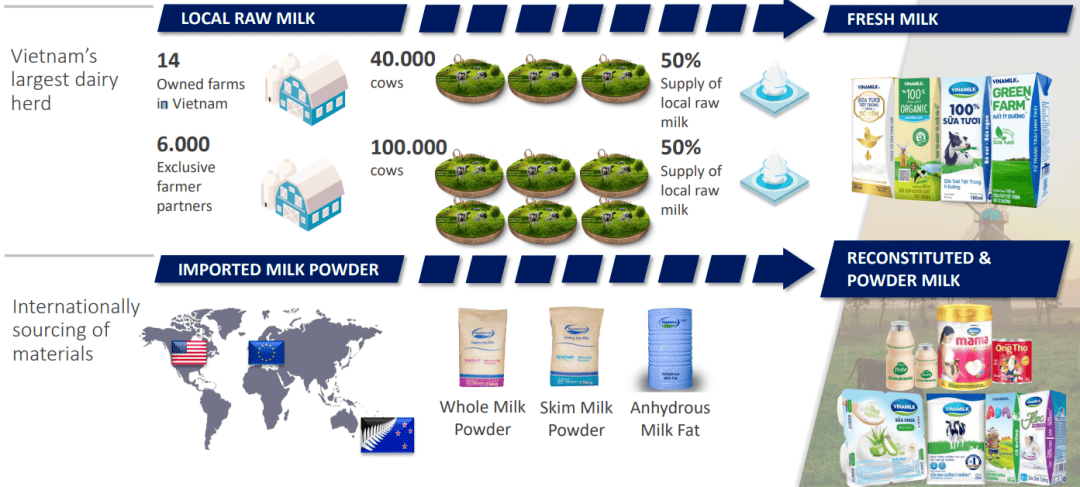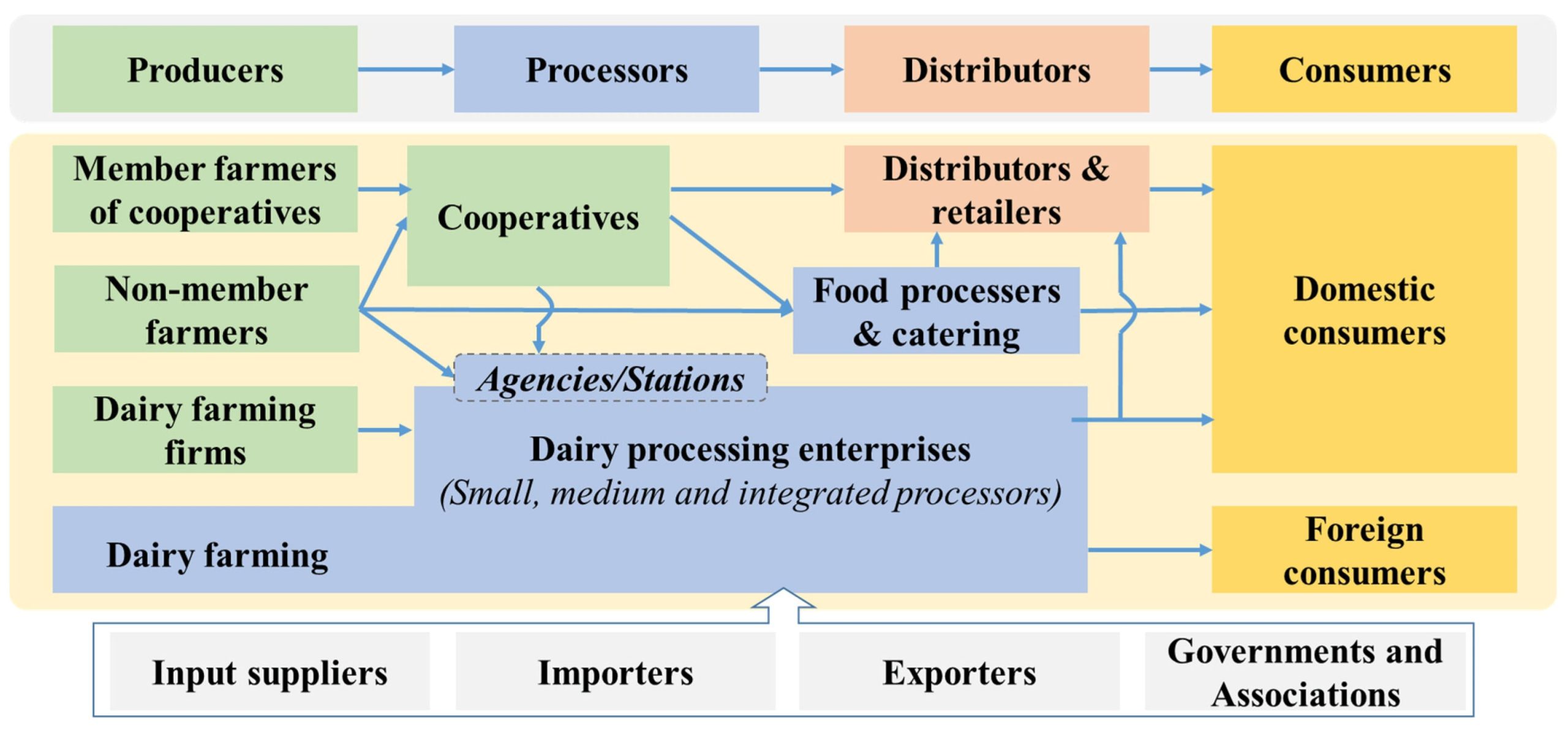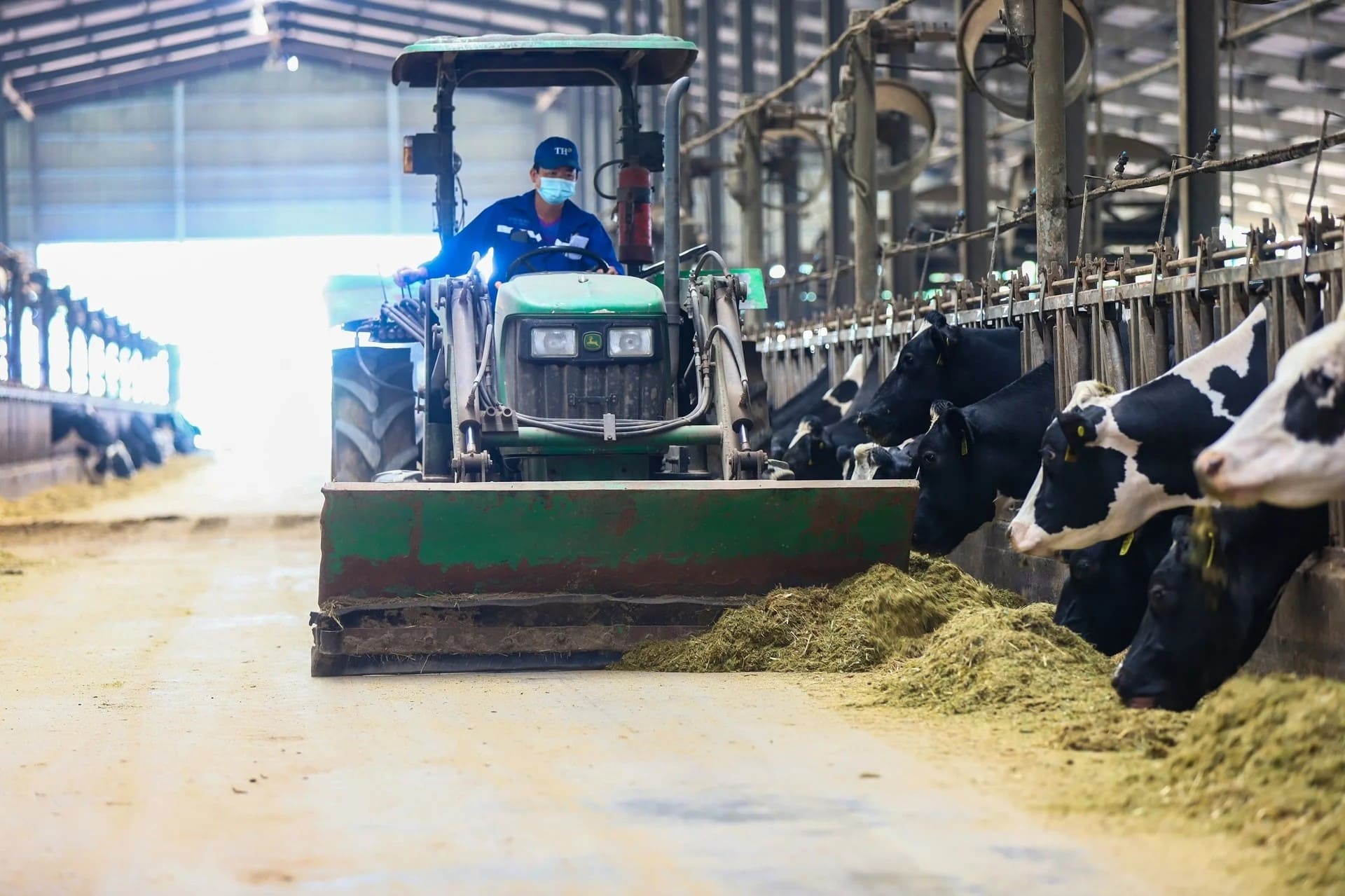Dairy Processing Plant in Vietnam

Step 1: Understand Vietnam’s Dairy Market Demand
Vietnam’s dairy market, worth $4.7 billion in 2018, grows 9-10% annually due to urban wealth and young consumers. Local production meets only 38% of demand, relying heavily on imports, which creates a gap for Australian expertise in high-quality milk, infant formula, and cheese. Programs like Vietnam’s School Milk Initiative boost demand, but local giants like Vinamilk hold 43.7% market share, requiring competitive strategies.
Start with market research. La Défense analyzes demand for your products—say, UHT milk for Hanoi supermarkets or yogurt for Da Nang cafes—ensuring compliance with Vietnam’s food safety laws. We connect you with local partners in Ho Chi Minh City’s District 7 or Hai Phong’s ports, helping your plant meet consumer needs while standing out in Vietnam’s competitive dairy scene.
Step 2: Register Your Business Legally
To launch a dairy processing plant, register a foreign-owned company (e.g., LLC) under Vietnam’s Law on Enterprises. Submit a Vietnamese-language application to the Department of Planning and Investment in Hanoi, Ho Chi Minh City, or Ba Ria-Vung Tau, detailing your capital (minimum $100,000 for processing), plant location, and scope. Large projects need National Assembly approval, assessing financial strength and environmental plans. Mistakes, like vague business plans, delay licenses.
Legal help streamlines this. La Défense prepares filings for plants in Hanoi’s Long Bien or Binh Duong’s industrial zones, ensuring compliance with the Ministry of Planning and Investment (MPI). We secure approvals, setting your dairy plant—whether producing cheese in Nha Trang or milk in Bac Ninh—on a solid legal foundation for smooth operations.
Step 3: Choose an Industrial Zone for Your Plant
Vietnam’s 350+ industrial zones (IZs) and export processing zones (EPZs), like those in Ho Chi Minh City’s District 9 or Da Nang, simplify setup by handling infrastructure and site clearance. IZs offer tax incentives, like 10% corporate tax for 15 years, and no import duties for exported products, ideal for dairy plants targeting ASEAN or China. However, provincial customs can be slow, impacting raw material imports.
Legal expertise optimizes your choice. La Défense advises on IZs, like Ba Ria-Vung Tau, a hub for Australian FDI with $400 million in projects, securing land leases and permits for your plant in Hanoi’s Ba Dinh or Hai Phong’s logistics zones. We ensure compliance, so your facility runs efficiently, producing milk for Vietnam or infant formula for export.

Step 4: Obtain Dairy-Specific Licenses
Dairy processing requires a Food Safety Certificate from Vietnam’s Ministry of Health, proving Good Manufacturing Practices (GMP) compliance, proper facilities, and trained staff. Each product, like milk or cheese, needs registration with safety and quality dossiers in Vietnamese. Non-compliance risks fines or bans, delaying your launch in Hanoi’s markets or Da Nang’s stores.
Legal support speeds this up. La Défense compiles dossiers for your plant in Ho Chi Minh City’s District 7 or Nha Trang, coordinating with health authorities. We ensure your products—say, butter for Hanoi hotels or yogurt for Hoi An cafes—meet Vietnam’s strict standards, getting your dairy plant to market without regulatory hurdles.
Step 5: Navigate Tax and Trade Incentives
Vietnam’s corporate tax is 20%, but dairy plants in IZs like Binh Duong or Hanoi’s industrial zones may get 10-17% rates for 10-15 years. VAT on dairy is 5-10%, and the Australia-ASEAN-New Zealand FTA (AANZFTA) cuts tariffs on exports, boosting profits for plants targeting China or Europe. However, Vietnamese tax filings and transfer pricing scrutiny require precision to avoid audits.
Legal guidance maximizes savings. La Défense files taxes for your plant in Da Nang or Hai Phong, securing AANZFTA benefits and incentives for eco-friendly processes in Nha Trang. We ensure compliance with Vietnam’s General Department of Taxation, keeping your finances clear so your dairy business—whether in Hanoi’s Cau Giay or Bac Ninh—thrives.
Step 6: Hire and Manage Staff Legally
Vietnam’s skilled workforce is ideal for dairy processing, but the Labor Code requires work permits for Australian managers, needing notarized degrees and experience, and Vietnamese contracts for local hires, covering social insurance (8% employee, 17.5% employer). Climate challenges, like heat stress reducing cow productivity, demand tech-savvy staff trained in automated systems.
Legal services ensure compliance. La Défense secures permits for your team in Ho Chi Minh City’s District 1 or Hanoi’s Hoan Kiem and drafts contracts for locals in Binh Duong. We advise on training for automated milking systems, ensuring your plant—whether producing cheese in Da Nang or milk in Hoi An—runs smoothly with a legal, skilled workforce.
Step 7: Address Environmental and Climate Risks
Vietnam’s dairy sector faces climate risks—high humidity and temperatures above 25°C cause heat stress, cutting milk yields. Processing plants must comply with environmental laws, securing waste management permits for facilities in Hanoi’s Long Bien or Ho Chi Minh City’s District 9. Non-compliance risks shutdowns or reputational damage in Vietnam’s eco-conscious market.
Legal experts mitigate risks. La Défense secures environmental permits for your plant in Nha Trang or Bac Ninh, ensuring compliance with Vietnam’s Ministry of Natural Resources. We advise on sustainable tech, like energy-efficient cooling for Hanoi factories, protecting your dairy business from climate and regulatory challenges while boosting efficiency.

Step 8: Build Local Partnerships and Navigate Culture
Vietnam’s culture values trust and patience. Rushing deals in Hanoi or skipping relationship-building in Ho Chi Minh City can stall progress. Partnering with local firms, like Vinamilk, offers market knowledge, as seen with Growtheum’s $100 million stake in Vietnam International Dairy. Bureaucratic delays, like customs in Da Nang, need local insight to navigate.
Legal support bridges gaps. La Défense coaches Australian investors on Vietnam’s norms, like respectful talks for partnerships in Hanoi’s Ba Dinh or filings in Hoi An. We draft joint venture agreements, ensuring your dairy plant—whether in Ho Chi Minh City’s District 7 or Hai Phong’s
Launch Your Dairy Plant with Confidence
Vietnam’s dairy market offers Australian investors a chance to profit from growing demand and trade perks, but legal, environmental, and cultural hurdles require careful steps. By registering smartly, securing licenses, and building partnerships, your processing plant can thrive in Hanoi, Ho Chi Minh City, or Da Nang. Professional support turns challenges into opportunities, ensuring your dairy business succeeds.
La Défense Law Firm is here to guide Australian investors with tailored legal solutions for Vietnam’s dairy industry. Contact us today to launch your processing plant and seize this exciting market.
Orther related legal articles:
- Legal Compliance for Foreign-Owned Company in Vietnam
- How to Set Up a Singapore Company in Vietnam 2025
- Guide to Set Up a Japanese Company in Vietnam 2025
- Procedures for Establishing a Representative Office of a Foreign Company in Vietnam

